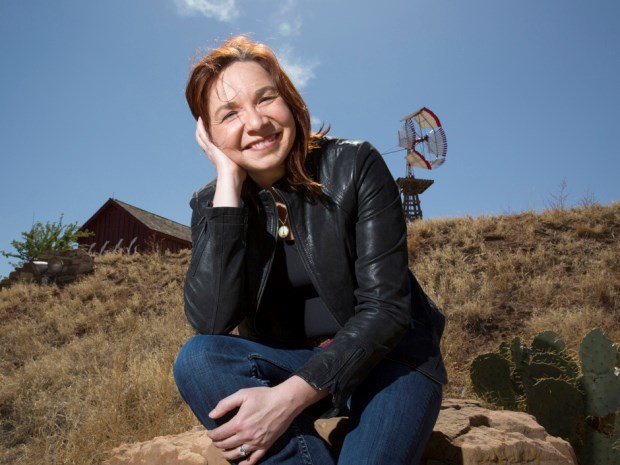The cards are on the table for Richmond when it comes to climate change. Adapt and mitigate the risks, or sink. Literally.
That’s one of the messages renowned atmospheric scientist Dr. Katharine Hayhoe will touch upon during a presentation (open to the public) at the Chan Centre for the Performing Arts Thursday evening.
“I work with cities on climate preparedness. The risks are increasing for many of our cities because, like Richmond, many are within tens of centimetres of sea level already,” said the Texas Tech University professor.
“The impact on us is a function of the changing risks and the way we respond to them. In the case of sea level rise, if we do nothing clearly the impact and hazard will increase,” she said.
She notes civilization is past the point of simply trying to mitigate climate change.
“We no longer have a choice between having to mitigate or adapt. People are already suffering so the choice of only mitigating is gone,” she said.
So, that means people and cities also need to adapt, as well.
Presently, Richmond’s dykes are not suitable for the predicted rise in sea level over the next 50 years, meaning the city will require hundreds of millions of dollars to raise them, over that time.
Hayhoe said other adaptations will need to take place as well, such as planting more trees and installing green roofs to lessen the impact of Richmond’s growing urban heat island.
Each city and region is different, she notes. Whereas Richmond is impacted by sea level rise, another city may face water shortages while yet another may be impacted by stronger storms.
Last year Hayhoe, a Canadian from Ontario, was named as one of Time magazine’s 100 most influential people in the world as a result of her work bridging the gap between scientists and evangelical Christians in the United States.
Her position in the science community is unique in that she’s an evangelical Christian herself while purporting the facts of climate change are just that — facts — and they are not open to debates predicated on faith or politics.
She purports that religious people don’t disagree with the science of climate change but are rather politicized on the topic since faith organizations tend to associate with the Conservative party in the U.S.
“After I talk to people, it is very rare to get someone who isn’t convinced,” she said.
Hayhoe is also a proponent of carbon pricing and says individuals need to improve upon their carbon footprint at the same time governments take action.
“We are paying for carbon in many ways so ultimately we have to have that real price for it,” she said.
Doing so will open up other economies, such as biofuel powered airplanes and electric cars, for example.
Hayhoe said the first step for individuals is finding the parts of life that consume the most carbon. For her, she said that means cutting travel. For others it may mean reducing meat consumption or taking transit.



